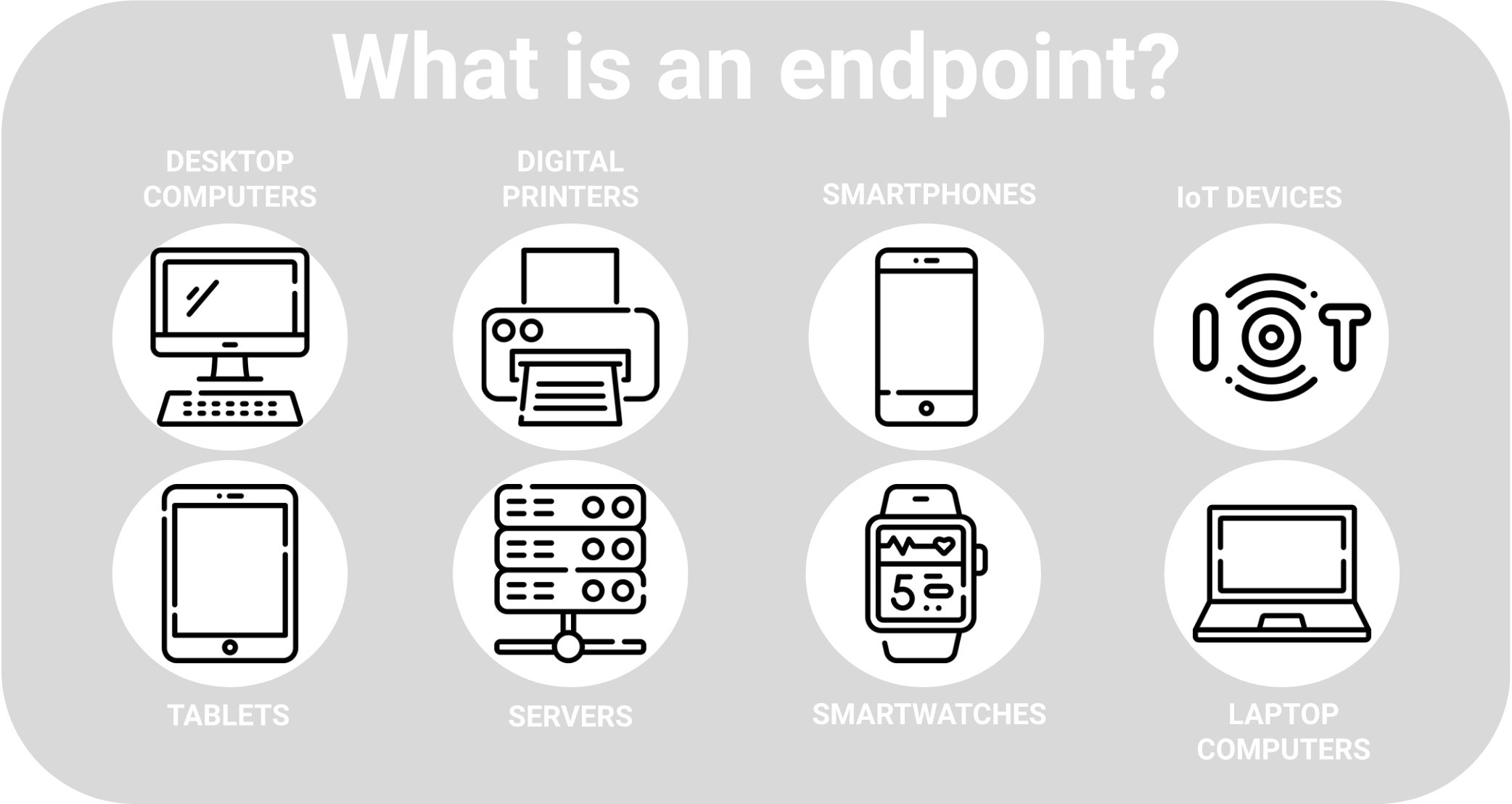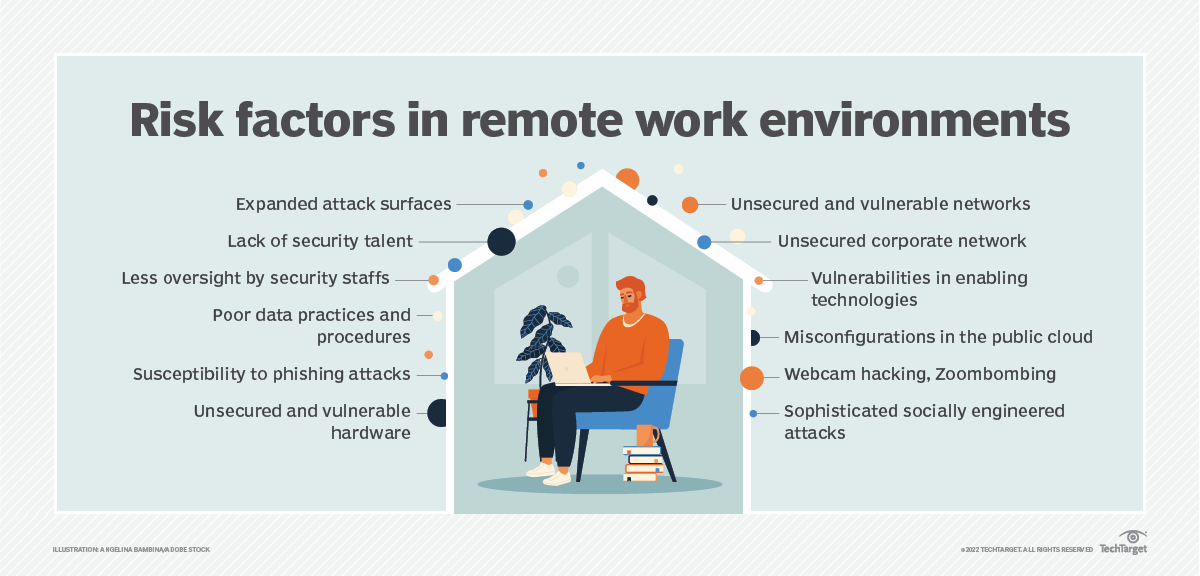 In today’s hybrid working environment, endpoint management has never been more important for businesses. Having a solid endpoint management strategy in place will ensure your employees can work from anywhere while maintaining a secure and compliant environment for your organisation. In this article, we’ll explain the in’s and out’s of endpoint management and why it’s so vital for contemporary workplaces.
In today’s hybrid working environment, endpoint management has never been more important for businesses. Having a solid endpoint management strategy in place will ensure your employees can work from anywhere while maintaining a secure and compliant environment for your organisation. In this article, we’ll explain the in’s and out’s of endpoint management and why it’s so vital for contemporary workplaces.
It’s likely you’ve never heard of endpoint management. This is because, until recent years, most enterprise endpoints were safely barricaded within an enterprise network secured with firewalls, routers, and proxy servers. This was much easier, as the workforce usually worked on-site on company devices.
In our new remote work environment, the game has changed. This is a new era of IT and organisations must adapt, pronto.
What is Endpoint Management?
Endpoint management, also known as device management, is the process of managing and securing the various devices that connect to an organisation's network, including laptops, smartphones, tablets and servers, as well as the software applications that run on them.

Image source: SentinelOne
- Device enrolment: Enrolling devices on the network and ensuring they comply with security policies.
- Software distribution: Distributing software updates and patches to devices.
- Remote management: Managing devices remotely, including the ability to lock, wipe, or locate a lost device.
- Security management: Implementing security measures such as firewalls, antivirus software and encryption to protect devices.
- Compliance monitoring: Monitoring devices to ensure they comply with regulatory requirements. Endpoint management can be done using different solutions like Microsoft Intune, Airwatch, etc.
Why is Endpoint Management so important for modern businesses?
Cloud-based, mobile and remote work environments allow for more flexibility in your work practices. However, they can also increase cyber risks relating to endpoints and applications which were previously protected within more traditional IT environments.
All businesses need endpoint management. However, if your team is working from home or in remote locations, it is especially important. Here are some reasons why:
1. Security
Endpoint management helps to ensure that all devices used to access corporate resources are secure and compliant with security policies. This is especially important in a hybrid working environment where employees may use personal devices or work from unsecured networks. Your confidential data is more likely to be protected.
2. Remote access
Endpoint management enables employees to securely access corporate resources from any location. This is important in a hybrid working environment where employees need to work from multiple locations.
3. Device management
Endpoint management allows IT teams to manage and update devices remotely. This is important in a hybrid working environment where employees may not be physically present in the office.
4. Compliance
Endpoint management helps to ensure that devices are compliant with company policies and regulations. This is important in a hybrid working environment where employees may use personal devices or work from unsecured networks.
Who needs Endpoint Management?
All businesses, small and large, traditional or hybrid, need endpoint management. That is, if you use devices such as desktops, laptops, tablets and mobile phones, to access corporate resources.
Endpoint management is particularly crucial for organisations that deal with sensitive data, such as personal health information or financial data.
Endpoint management becomes more complex (and even more important) if your team members:
- Use personal devices e.g. their own laptops or mobile phones.
- Work irregular hours.
- Work internationally.
- Use a wide variety of remote collaborative tools.

Image source: Tech Target
What can happen if my business doesn't have Endpoint Management?
Without endpoint management, security breaches are a big risk for the organisation. Your network and devices may be vulnerable to cyberattacks, potentially resulting in data breaches, theft of sensitive information and damage to business reputation. Read our recent article Three of the Most Shocking Cyber Crimes in Recent History.
The global cyber security landscape has also seen increased threats in recent years. During the pandemic, cyber criminals took advantage of misaligned networks as businesses moved to remote work environments. In 2020, malware attacks increased 358% compared to 2019.
Other risks could include non-compliance and failure to meet regulations resulting in fines or legal liabilities; productivity loss as devices slow down or malfunction; and higher IT costs, as more time and resources are required to address issues and incidents on individual devices.
How Diamond IT can support your Endpoint Management
We offer a range of services through our endpoint and application management offering to help you protect your devices and applications from cyber attacks, including application patching which ensures that all of your applications are consistently patched to reduce the risk of vulnerabilities.
Our services also include controlling application installation and execution to prevent malware and unauthorised software, securing Office Macros to authorised users only, and restricting access to functions vulnerable to cyber-attacks through application and endpoint hardening.
Finally, our mobile device management (MDM) service allows you to control applications, settings, and track devices, giving you the ability to reset them in the case of theft.
Diamond IT's Business Technology Managers (BTMs) and Business Technology Consulting team are here to guide you through making the best decisions around technology to support your modern workforce, including complete endpoint management solutions.
Our team is here to help. Contact us today on 1300 307 907.





